Survival skills: 10 survival essentials you should learn
Survival skills are techniques to sustain life in any natural or built environment. These techniques provide necessities for human life, including water, food, and shelter. Discover essential survival skills that you should consider learning.

Source: Getty Images
TABLE OF CONTENTS
Survival skills come in handy when going on wilderness trips or when faced with an emergency or natural disaster. These essentials comprise basic skills like first aid and technical ones like building shelters.
Survival skills you should learn
Depending on your outdoor activity (backpacking, hiking, horseback riding, fishing or hunting), learning about basic or primitive wilderness survival skills will be helpful. Here are some essential survival skills you should know.
1. Building a shelter

Source: Getty Images
Shelter is one of the core essentials of survival. Having a well-built shelter becomes essential for your comfort, safety and survival. First, pick a location shielded from the elements (wind, rain, flooding, direct sunlight).
During the construction, consider factors like insulation. Look for and use materials like leaves and grass as extra layers to protect your shelter. You could build a rectangular or triangular frame from logs. Use fillings like debris (dead leaves, sticks and moss) to protect the ground and provide warmth.
2. Building a fire

Source: Getty Images
Building a fire is among the top basic survival skills. Fire helps meet many survival needs. A campfire can boil water and make drinking and cooking water safe. Fire also creates a sense of safety and protection.
For example, when temperatures are low, a fire can postpone or prevent the risk of hypothermia. Fire can also be an essential energy source in a wilderness survival situation and deter wild animals.
Ensure you always carry a fire lighter or familiarise yourself with primitive fire lighting methods.
3. Finding and purifying water

Source: Getty Images
Sourcing clean drinking water is one of the most critical wilderness survival skills. There are various methods of locating water sources in the wilderness.
- Vegetation, animal tracks or depressed ground might indicate the presence of underground springs.
- Listen to the sound of running water, which could lead you to a nearby stream or river.
- If you're near mountains, melting snow or ice can also serve as a water source.
- Making solar stills will provide you with clean and purified water to drink.
After finding a water source, the next step is to purify it to make it safe for consumption. Here are the most common methods you can use:
- Boil your water to kill any harmful microorganisms. Ensure you bring your water to boiling point for at least one to three minutes and cool before drinking.
- Always carry water filters (the outdoor-use water filters) and follow the manufacturer's instructions for proper usage and maintenance.
- Use water purification tablets or drops to clean your water. These products contain chemicals like chlorine or iodine that effectively kill microorganisms.
- Portable ultraviolet (UV) sterilisation devices are easy to use and can purify water in minutes.
4. Foraging for food
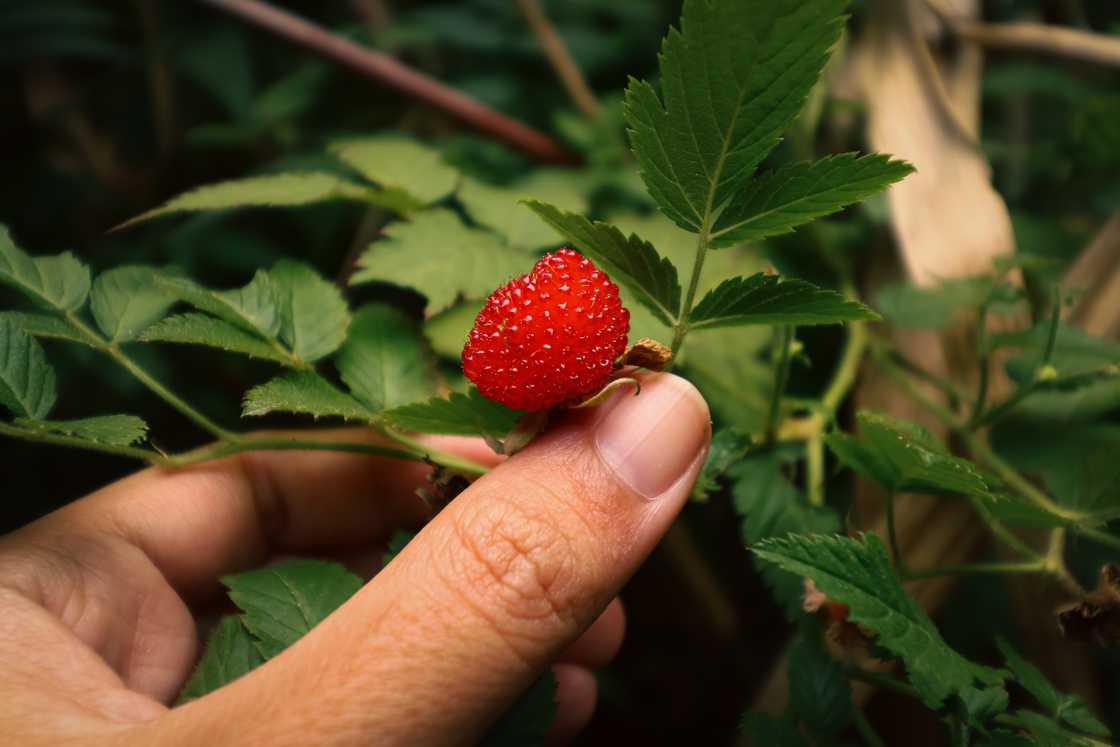
Source: Getty Images
Foraging for food is among the top and most essential outdoor survival skills. For the best results, familiarise yourself with the local plant life beforehand. Culinary root tubers, fruit, edible mushrooms, nuts, beans, cereals or edible leaves, cacti, ants and algae are ideal food choices.
Plants are also some of the most accessible food sources in the jungle, forest, or desert, requiring little effort. Animal trapping, hunting, and fishing will allow you to acquire high-calorie meat. However, such ventures require skills and equipment like bows, snares, and nets.
5. Master navigation techniques
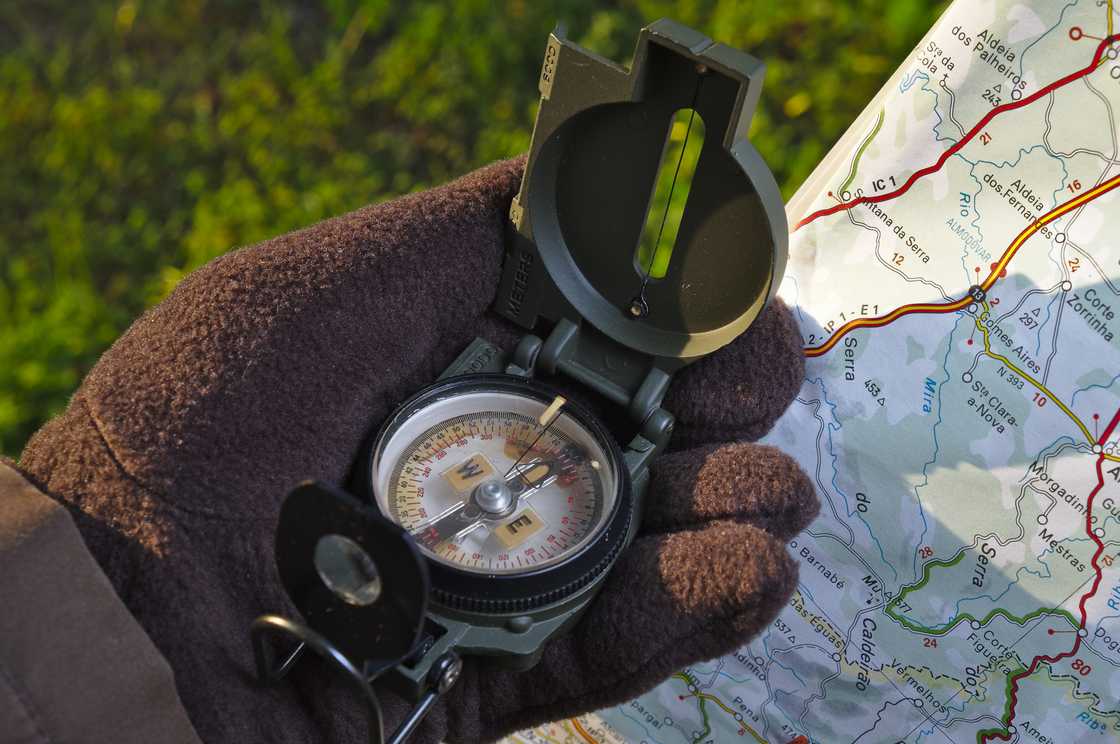
Source: Getty Images
Mastering navigation is a skill that every outdoor enthusiast should master. Begin by familiarising yourself with maps, compasses, and GPS devices. Follow up with learning basic orienteering (the art of navigating using a combination of map and compass) skills.
Finally, practice using natural landmarks and celestial navigation as backup methods if you lose your compass or GPS.
6. Basic first aid
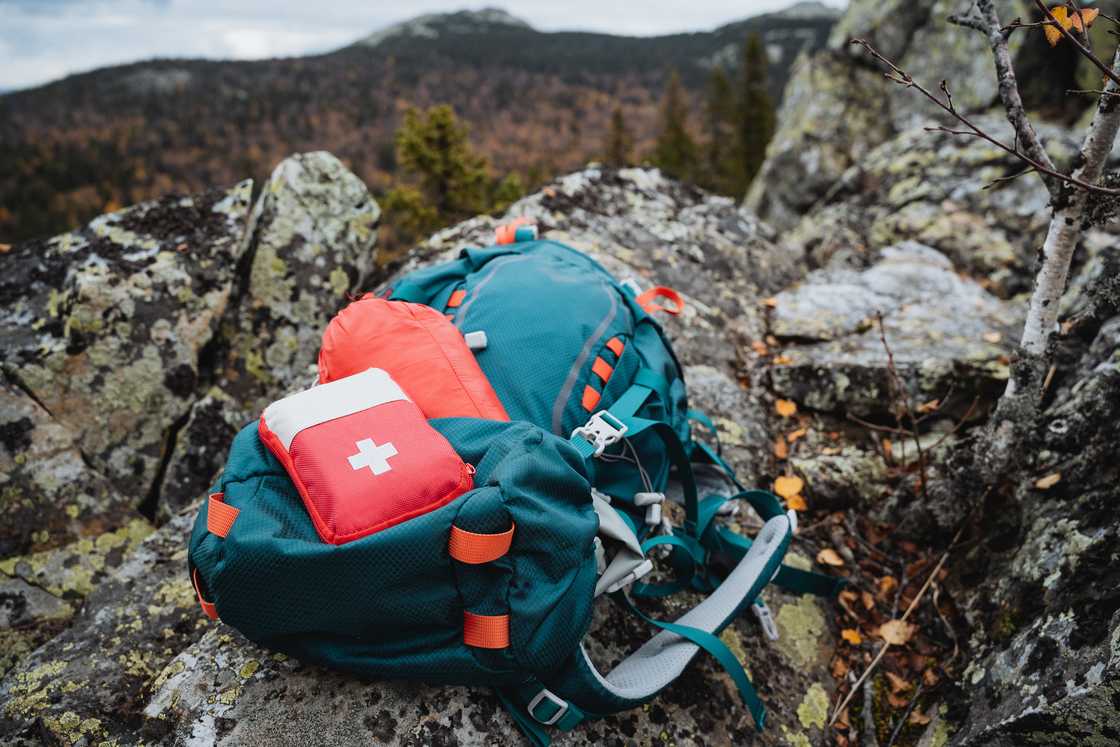
Source: Getty Images
Basic first aid is essential, especially for outdoor enthusiasts who may be far away from help and emergency services. Understanding and being able to administer first aid may save your life or the life of someone you love.
Begin practising administering first aid for a series of common threats in survival situations at home with family or friends. Focus on the basics like CPR, bleeding control, treating burns, and stabilising limbs. Additionally, familiarise yourself with plants and ointments (like petroleum jelly) for insect stings and abrasions.
7. Learn about knot-tying
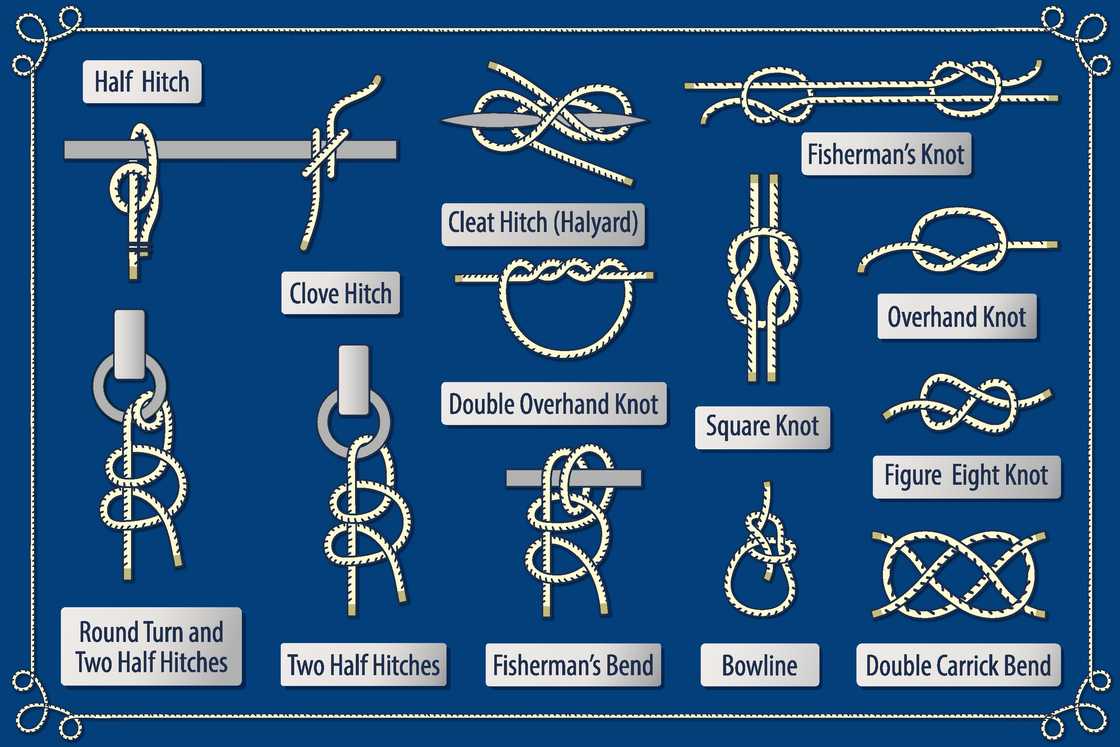
Source: Getty Images
An often-overlooked skill, knot-tying can help your chances of survival by helping you build a shelter, set snares, and create tools. Survival knots provide reliable and versatile means for securing gear, building shelters, and climbing.
According to Mountain House, some of the best survival knots include the clove hitch, the square of reef knot, the sheet bend, the bowline, the double fisherman's knot and the Prusik knot.
8. Making a weapon
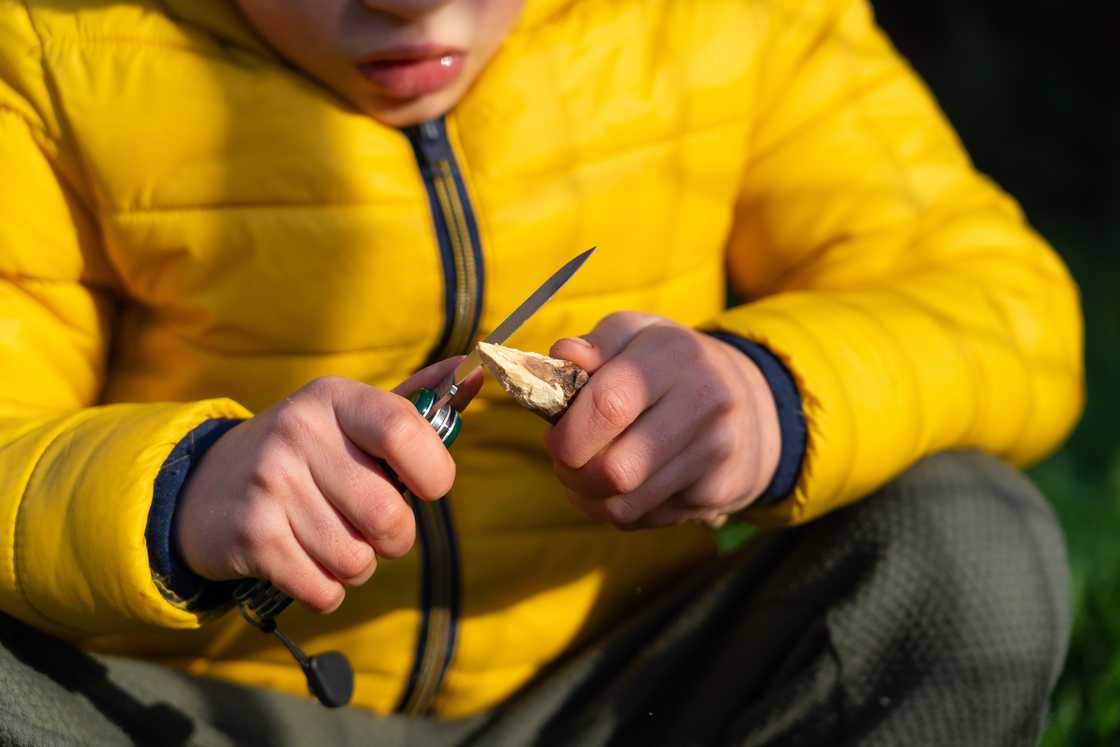
Source: Getty Images
Making a weapon is one of the top primitive survival skills you should learn. There are many kinds of primitive weapons, ranging from rocks, spears, bows and arrows, blowguns, slings and hand axes. These primitive weapons can take days or weeks to build using simple hand tools.
9. Signalling for help
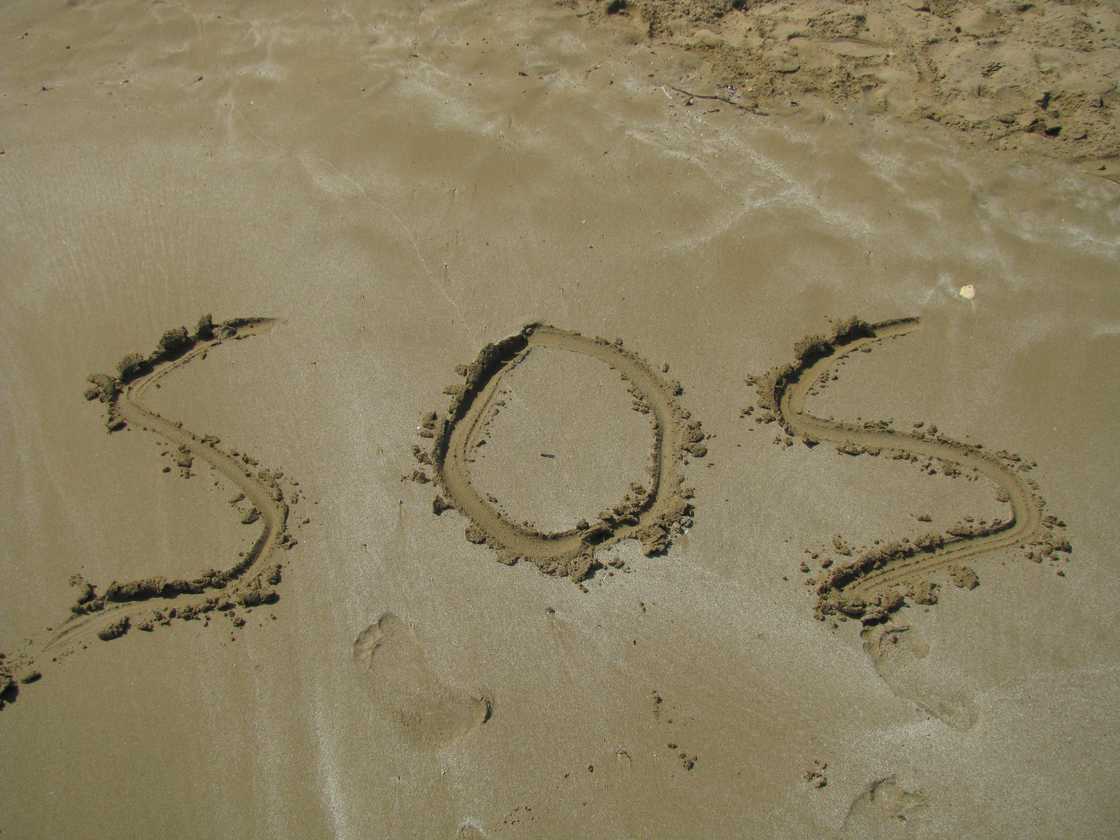
Source: Getty Images
Being prepared for anything is one of the most critical aspects of outdoor adventures. Emergencies can occur, and one of the most common occurrences is getting lost. Always be prepared to reach out when needed. Avoid relying too much on your mobile phone, and at least always carry a whistle.
Remember that three is the international number of distress. Three of anything, like three gun blasts, three whistle blasts, or three fires in a row or triangle, in rapid succession means you need help.
Try to contrast with your surroundings to stand out. For example, pack a blaze orange tee-shirt that can easily attract attention. A signal mirror is also an ideal pocket tool to signal rescuers on land, sea, or air.
10. Mental preparedness

Source: Getty Images
Mental clarity and preparedness are critical to survival. It is essential to be calm and focused during an emergency or disaster. Specific strategies and cognitive tools can help people cope better in a survival situation. They include:
- Developing mental toughness, i.e. getting physically fit, living a disciplined life, avoiding getting too comfortable
- Practising a positive attitude, i.e. you become who you think you are, you achieve the things you believe you can
- Practice calming yourself down in stressful situations
- Research on emergency procedure knowledge.
- Have trust in yourself and trust your instincts.
Survival skills for kids
Survival skills help children manoeuvrer in an emergency in an urban or rural setting. Here are some essential survival skills for children:
- Use the STOP acronym: Stop as soon you realise you are lost; Think about the situation; Observe your surroundings; Plan what to do.
- Signalling: Teach them how to whistle or attract attention when stuck or in danger.
- Stay put: Teach young kids not to panic when faced with danger. They should learn to identify hiding spots where they can hide until help arrives.
- Learn how to identify spoilt food: Children should still be able to tell if food is too far gone to consume.
- Learn how to forage and identify locally edible and medicinal plants: Be able to differentiate safe and edible plants from poisonous ones.
What are the most useful survival skills?
They comprise the four essential elements of survival: shelter building, water procurement, fire starting and food procurement.
How do you develop survival skills?
You develop your survival skills by constantly updating your knowledge and keeping it current. For example, learn about new methods of purifying water or faster ways of starting a fire.
What is the most important thing to survive?
Some essential survival skills are building shelter, starting a fire, procuring food and drinkable water, first-aid, and signalling for help.
What are the benefits of survival skills?
Survival skills foster self-sufficiency and independence. They also help people to become less reliant on modern conveniences.
Above are the top survival skills you should learn. They comprise techniques to sustain life in any natural or built environment. Examples include first aid, building shelter, finding food and water, and mental preparedness.
Yen.com.gh recently published a list of the best survival books. Survival books provide essential information on how to avoid death or injury when faced with a disaster. These books provide you with the most basic and technical survival skills.
If you have not received hands-on training in survival techniques, the next best option is to read a quality survival book or guide. But there are a lot of choices to pick from; which are the top-rated survival books ever?
Source: YEN.com.gh








